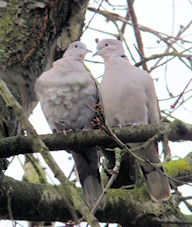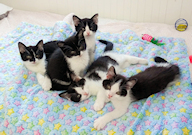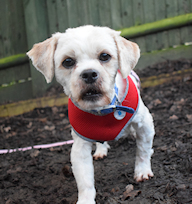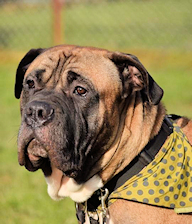






As well as founding the Ealing Animal Charities Fair, Marion Garnett has also, since 2011, written a weekly Animal Rescue column which is published in the West London local newspaper, The Gazette. Columns published since January 2019 are now available online here.
If you would like to see any of the columns published before 2019, please contact Marion directly (see the Contacts page).
Column 4 May 2020
We’re all missing things because of the lockdown. Some essential, others more peripheral. One thing I’m missing is my visit to the Natural History Museum’s Wildlife Photographic exhibition, which I usually make in April.
With the Museum being closed, I decided to see as many of the photographs as I could online. And, of course, the winning photograph by this year’s Wildlife Photographer of the Year, Yongqing Bao from China, immediately haunted me.
Entitled The Moment, it shows a Tibetan fox pouncing on a startled marmot in the mountainside. The marmot had recently come out of hibernation when it was surprised by the fox with three hungry cubs. The picture shows the predator baring her teeth and the terror of the prey with the intensity of life and death written on both their faces. Seeing the picture, I can’t help but draw a parallel between how, like animals who hibernate, we are currently being encouraged to take cover from the coronavirus at home but, when lockdown is over, we have to emerge without (like the marmot) being engulfed by some unforeseen danger, the moment we set foot outside.
Before we leave the Natural History Museum, let’s take a look at their wildlife garden.
Many visitors go to the Museum without realising that on the west side, next to
the busy Cromwell Road, there is a tranquil wildlife ga rden. In recognition that
wildlife needs all the help it can get, the Museum has plans to extend this garden
and create a larger, biologically diverse green space in the heart of London as part
of an Urban Nature Project – a welcome initiative.
rden. In recognition that
wildlife needs all the help it can get, the Museum has plans to extend this garden
and create a larger, biologically diverse green space in the heart of London as part
of an Urban Nature Project – a welcome initiative.
The Museum’s message that wildlife is in trouble is echoed by the Royal Society for the Protection of Birds (RSPB). The results of this year’s RSPB’s Big Garden Birdwatch have just been published. Although the order of the ten most frequently seen birds in the UK has changed little, with the top four being house sparrow, starling, blue tit and woodpigeon, the numbers of birds spotted have dropped dramatically since the Birdwatch began in 1979. For example, house sparrows are down by 53%, starlings by 80% and robins by 32%. Reasons for this decline are complex but include fewer green spaces, pollution and climate change.
Both the RSPB and the Natural History Museum have ideas of how we can help wildlife
by, for example, wildlife-
Column 11 May 2020
In some respects, the work of Hounslow Animal Welfare Society (HAWS) would be a lot easier if cats were primates.
Not only might they have fingers and an opposable thumb so they could open a sachet of cat food themselves but also they are likely to only have one offspring at a time, instead of several.
I’m thinking of this right now as, in order to keep children occupied during the
lockdown, the world-
As well as having larger, more complex brains, one of the key differences between primates (and that includes us) and other animals is that when primates reproduce they usually have only one baby at a time.
If that was the case with cats, the work of HAWS would be different. HAWS spend a lot of time finding homes for homeless kittens. Just look at these five beauties. Their Mum was a feral cat but because the babies have had a lot of human contact they are tame.
Feral cats have had little or no contact with humans and cannot be tamed. They are usually the offspring of stray, feral or abandoned domestic cats who have missed out on positive socialisation experiences with people when they were two to eight weeks old.
Before the lockdown, HAWS was working with the colony of feral cats where the Mum of these kittens lived. What they do is, humanely trap the cats, neuter them, attend to medical needs and, if it’s suitable, put them back where they found them. If the cat is pregnant, HAWS foster the Mum until she gives birth and the kittens are old enough, then they neuter the Mum and put her back.
This is what has happened with this family. HAWS foster carer said the kitten’s Mum was one of the wildest feral cats she has known. Mum has now been neutered and returned
but the kittens are used to human company and can be homed when lockdown is over.
If this could be with you, call HAWS on 020 8560 5443.
was one of the wildest feral cats she has known. Mum has now been neutered and returned
but the kittens are used to human company and can be homed when lockdown is over.
If this could be with you, call HAWS on 020 8560 5443.
Now back to the primates. Monkey World’s clear interactive lessons take place every Monday on Facebook at 11am. You can email education@monkeyworld.org to ask any questions you have.
Completed worksheets can be sent to Monkey World who will send a certificate which can be built up into a portfolio. Details are available from monkeyworld.org.
Column 18 May 2020
Earlier today, I opened the most fabulous hand cream I’ve ever been given. It smells divine. The only problem is, it’s so thick, I can’t get it out of the bottle. It must be a bit like dogs who are given interactive feeders. They know the food is in there, it smells delicious but it takes time to get it out.
Fortunately for dogs with birthdays looming, forget having to work for your slice
of cake. Battersea Dogs and Cats Home have shown us how to make a dog birthday cake
which, as a treat, can be sliced up and handed out on a plate. Many cake recipes
claim to be dog-
Of course, this cake doesn’t just have to be for a birthday, it could also be made to celebrate events such as, the anniversary of the day a rescued dog was adopted – its “Gotcha Day”.
Leema still hasn’t had his “Gotcha Day” and he may have to wait for a while yet.
This  is because, although Battersea have now restarted homing their animals, Leema
needs to go to a home where he can live with another dog. But, because of social
distancing rules, Battersea are not, at present, able to do introductions to another
dog already living in the home.
is because, although Battersea have now restarted homing their animals, Leema
needs to go to a home where he can live with another dog. But, because of social
distancing rules, Battersea are not, at present, able to do introductions to another
dog already living in the home.
This 4 year old Shih Tzu is a sensitive boy who hasn’t had a good start in life.
He has no understanding of what it’s like to live in a home and needs owners who
have the patience to help him adjust to the new environment. He needs to live with
a well-
With guidance, he has the potential to make a wonderful pet. If you are interested, see more details at battersea.co.uk. During the coronavirus outbreak, special arrangements for rehoming are in place. Battersea’s centres are not yet open to visitors.
Now for some different news. Since the lockdown began, I know that some readers have been unable to access a local paper and read this column. So, just to let you know that this column is now available online. Go to ealinganimalsfair.london and click on the tab labelled “Weekly Column”. You can also catch up there with some of the columns you have missed.
Column 25 May 2020
This Mastiff Cross, Bruno, might be so hefty, he’s been given the nickname, One Ton
Fun, but he’s clever enough to know how to open doors. Although lockdown is a time when some doors are closed, it’s also a time when, as Bruno has discovered, other
doors can be opened. For example, drawing has never been my strength but after watching
the National Animal Welfare Trust’s (NAWT) drawing tutorial developed by the artist,
Emma Rowsell, on how to draw a Husky dog, even I could manage a portrait of Bruno.
Lockdown can provide an opportunity to develop skills, we’ve not previously had time
for. You can access the free drawing tutorial at nawt.org.uk.
when some doors are closed, it’s also a time when, as Bruno has discovered, other
doors can be opened. For example, drawing has never been my strength but after watching
the National Animal Welfare Trust’s (NAWT) drawing tutorial developed by the artist,
Emma Rowsell, on how to draw a Husky dog, even I could manage a portrait of Bruno.
Lockdown can provide an opportunity to develop skills, we’ve not previously had time
for. You can access the free drawing tutorial at nawt.org.uk.
Using the methods described in the video you can learn to draw any animal from your own pet to wildlife in your garden. You could use it as part of the Wildlife Trusts’ fabulous 30 Days Wild project. One of the ideas they have is to sketch something from nature and they’ve got plenty of experience with that.
The Wildlife Trust cares for 2300 wild places including woods, rivers and inner-
Now back to Bruno who is waiting at the NAWT’s Watford centre for homing to restart. NAWT are desperate to reopen their doors to the public not only because they have animals to rehome but also because they need the income. Money is tight. Dogs like Bruno have a big tummy to fill. When lockdown is over, one way NAWT generate income is by boarding cats, dogs and small animals. Animal boarding places can be like gold dust, so it’s useful to know all available locations. If you board your pet here, not only will your pet be looked after by trained members of staff but also the proceeds will help homeless animals.
Meanwhile, Bruno continues to wait for new doors to open for him. He’s an inquisitive dog who is looking for an owner experienced with large breeds. He doesn’t like being left on his own, so his owner will need to be around to keep him company. See nawt.org.uk, if this could be with you, when rehoming starts.
May 2020
| Groups 2025 |
| Map |
| Car parking |
| Subject Index |